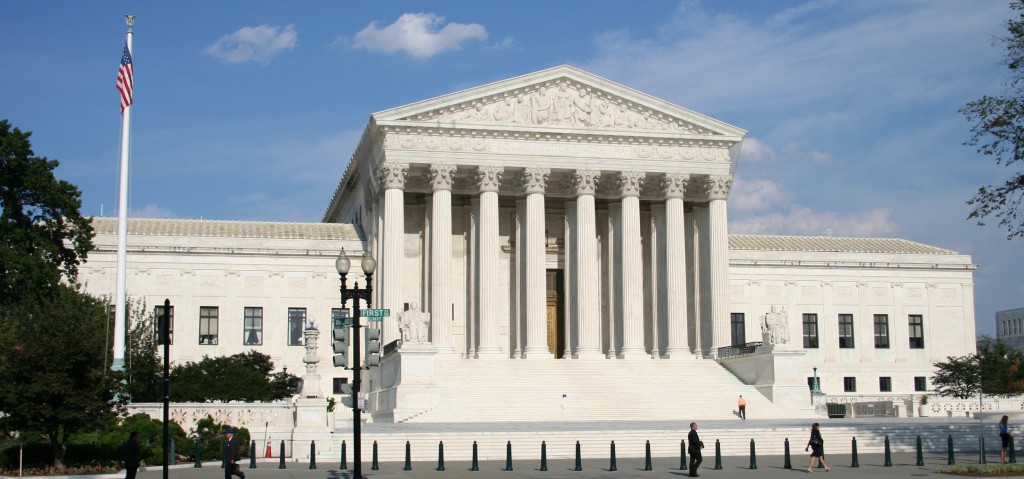Washington, Jan. 13 – Earlier this week, the Supreme Court heard oral arguments in a critical case for children with disabilities, Endrew F. v. Douglas County School District, one of the most important education cases in decades.
In 1975, Congress passed a federal law requiring school districts to provide a “free appropriate public education” for children with disabilities, which includes individualized education plan (IEP) for students to be included in public schools. The law also provided federal funds for these services. The act was renamed the Individuals with Disabilities Education Act (IDEA) in 1990. Unfortunately, IDEA has never been fully funded, leading to some school districts struggling to keep up.
This case, representing a boy with autism named Endrew F. (Drew), argues just how much educational benefit the IEPs must provide. While some lower courts have ruled the need for a “meaningful” educational benefit, others require only a bit more than de minimis – the bare minimum.
Since Drew’s parents felt he was not improving in public school, they sent him to a private school where he progressed at a much quicker pace. Under IDEA, parents can receive tuition reimbursement from the school district if their child does not receive enough “educational benefit” from public schooling. Drew’s parents were denied, leading to this case.
The U.S. Court of Appeals for the Tenth Circuit ruled that the school district was required to provide Drew only with an education that gave him a “benefit” that was “more than de minimis” – and that the school district had done that. The Supreme Court accepted Drew’s parents’ challenge to that decision.
“The school district here is saying, so long as we give barely more than a de minimus benefit, just we teach you a little bit of something, that is enough,” Jeffrey Fisher, a lawyer representing the young boy and his family, argued on behalf of his client’s education. “We think that’s a recipe for second-class citizenship.”
While the district’s legal counsel William E. Trachman declined to talk about the case with the Washington Post, he did provide a statement.
“The District complies with every facet of federal law in making sure that students with special needs are not only provided services, but that educational experts and the student’s parents are maximally involved in the process, and that every Individualized Education Plan is personalized, holistic and ambitious.”
Following this hearing, the Supreme Court will decide on a national standard of education for students with disabilities. During the hearing, they discussed nine different levels of standards.
The Judge David L. Bazelon Center for Mental Health Law, a national legal advocacy organization advancing the rights of people with mental disabilities, often advocates for students with disabilities to receive the educational opportunities other students receive.

“We hope that the Supreme Court will issue a decision in Endrew F. that recognizes that an ‘appropriate’ education for students with disabilities is one that reflects the expectations we have for all students,” said Ira Burnim, Legal Director of the Bazelon Center for Mental Health Law.
In the Supreme Court, the Bazelon Center and the law firm Kellogg Huber Hansen filed a “friend of the court” or “amicus” brief on behalf of six former U.S. Department of Education officials responsible for implementing the IDEA. The brief explains that with advances in special education practice, the great majority of students with disabilities can perform as well in school as other students, and that schools across the country are implementing these practices today to help students with even significant disabilities, like Drew’s, achieve proficiency in math, language arts, science and other subjects. These educational advances, the brief argues, are the foundation for the changes Congress made to the IDEA in 1997 and 2004 to ensure that public schools provide students with disabilities the individualized instruction and supportive services they need to learn and meet the grade level standards to which other students are held.
Only 65 percent of students with disabilities complete high school, which is a key contributor leading to just 1-in-3 Americans with disabilities having a job. This, in turn, leads to high costs of government benefits for those not working, plus the increased risk of falling into the school-to-prison pipeline.
Want more information about this case? The Bazelon Center has a great description as well as a summary of their advocacy work in the case, including links to all the briefs filed in Endrew F. v. Douglas County School District available on their website.

Be First to Comment